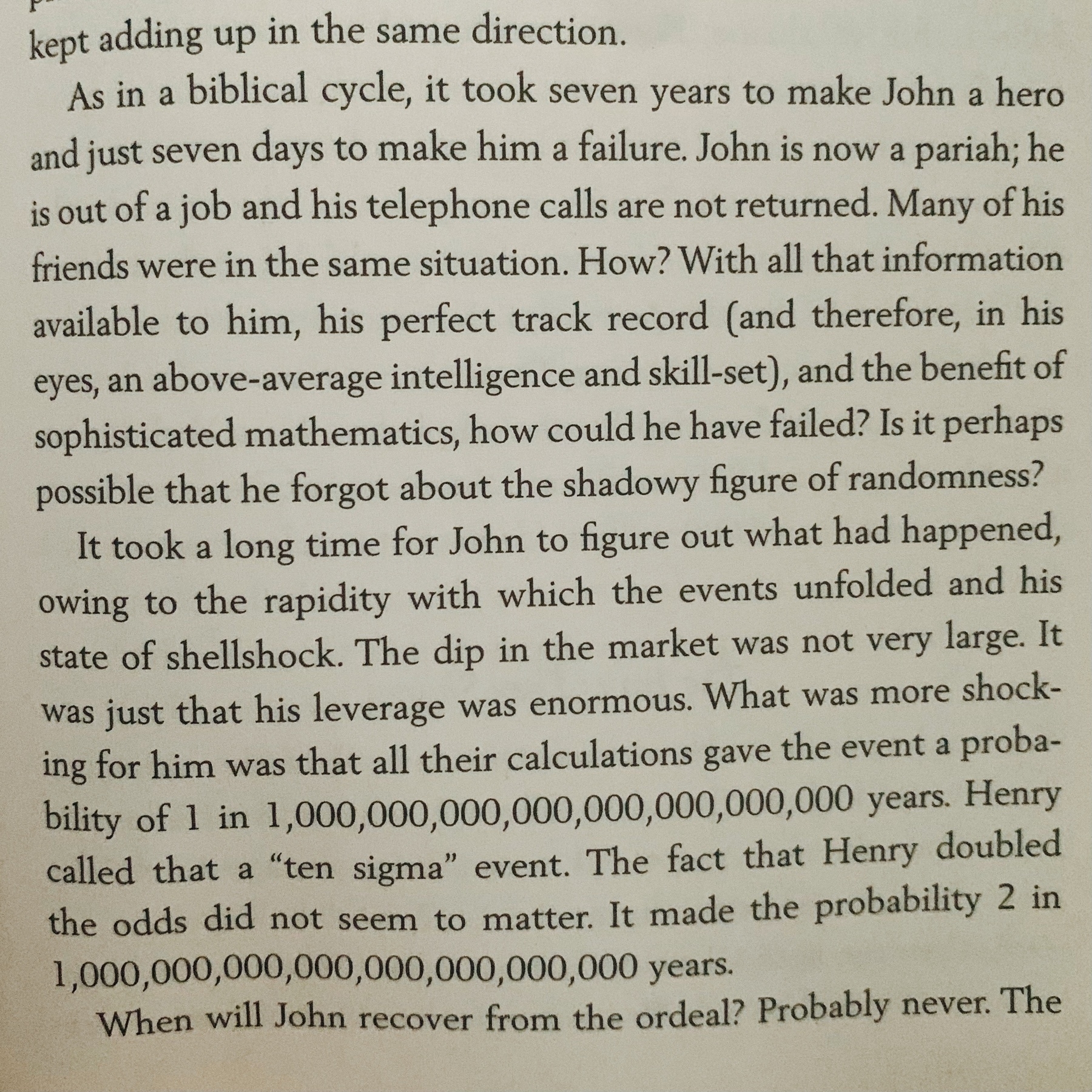Fooled by randomness, tornado edition (from The Fifth Risk by Michael Lewis) 📚
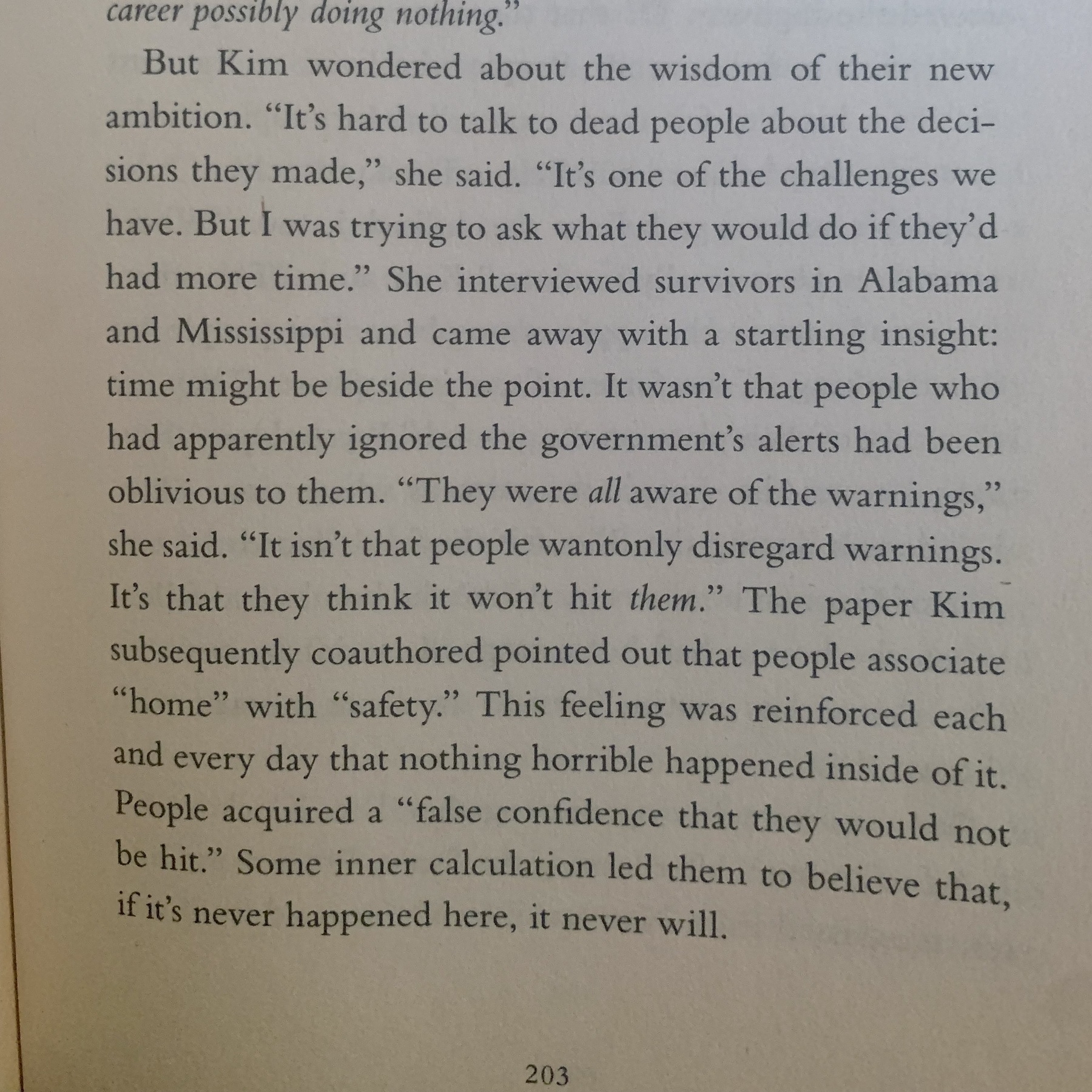

Finished reading: Alexander Hamilton by Ron Chernow 📚
Three remarkable achievements here: Hamilton’s for having lived the life he did, Chernow’s for assembling his remarkable tale, and Miranda’s for distilling and rearranging it into a Shakespearean work of art. Will read again.
In the late 1700s, America’s founding fathers had a fight over the best treatment for yellow fever, then sweeping though Philadelphia. Republicans preferred bloodletting and purges; Federalists took a more conservative approach.
If it’s any consolation, the country survived.
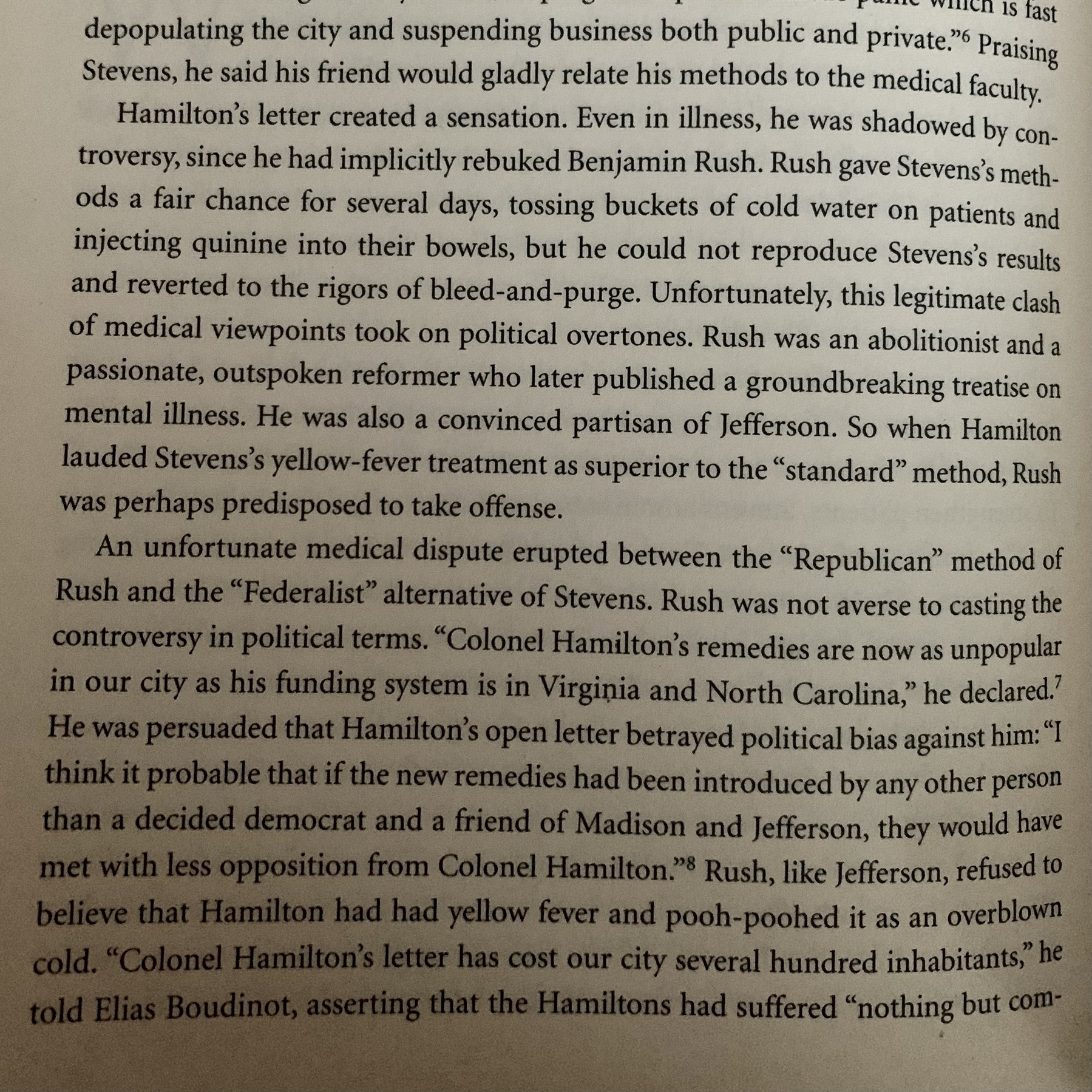
I love Hamilton the musical, but the opening 5 minutes didn’t quite capture the absolute horror of his tween years. Yikes.
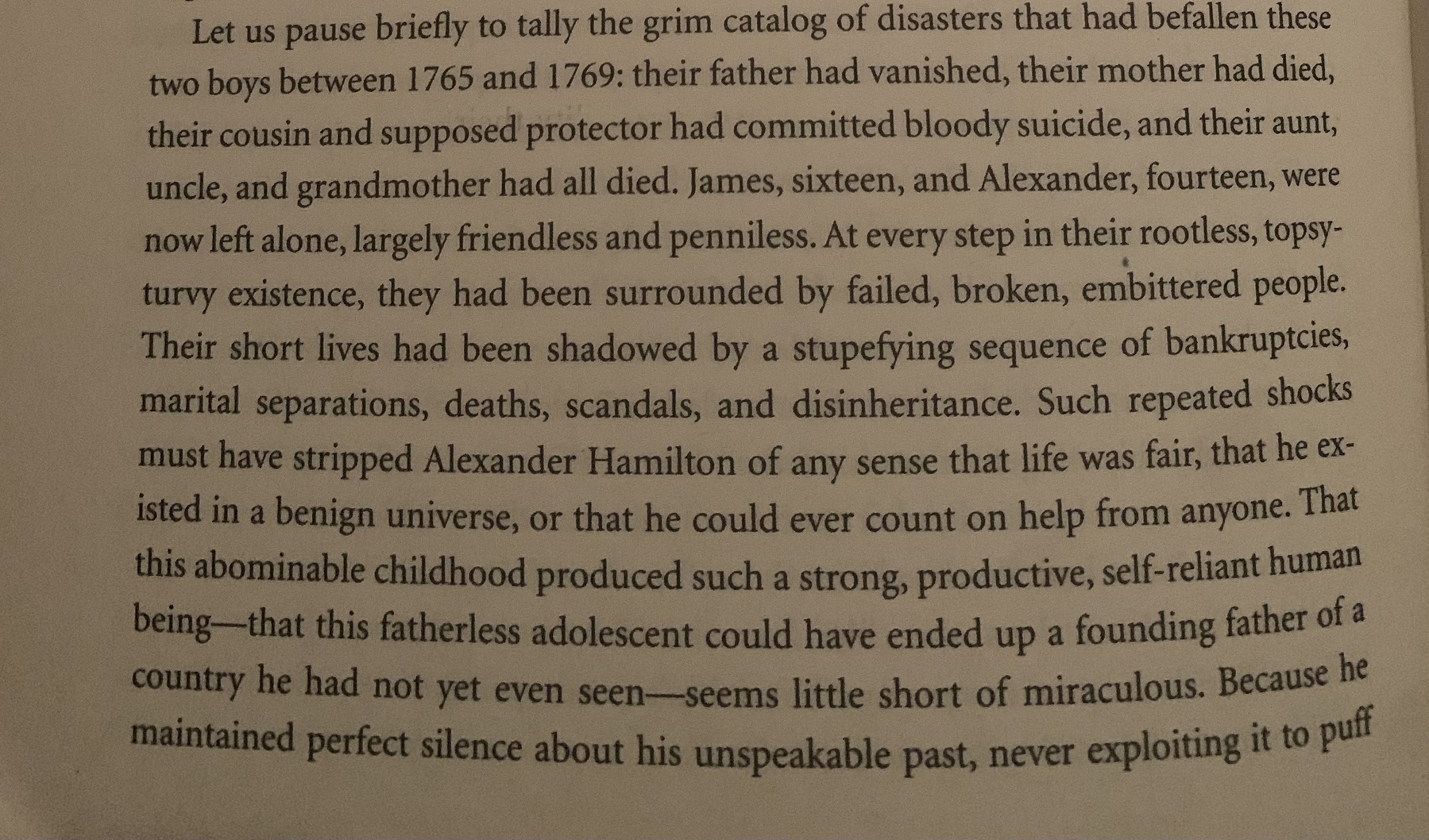
Pre-weekend reading: How to nurture a personal library. Just lovely.
📚From The Complacent Class by Tyler Cowen, February 2017.
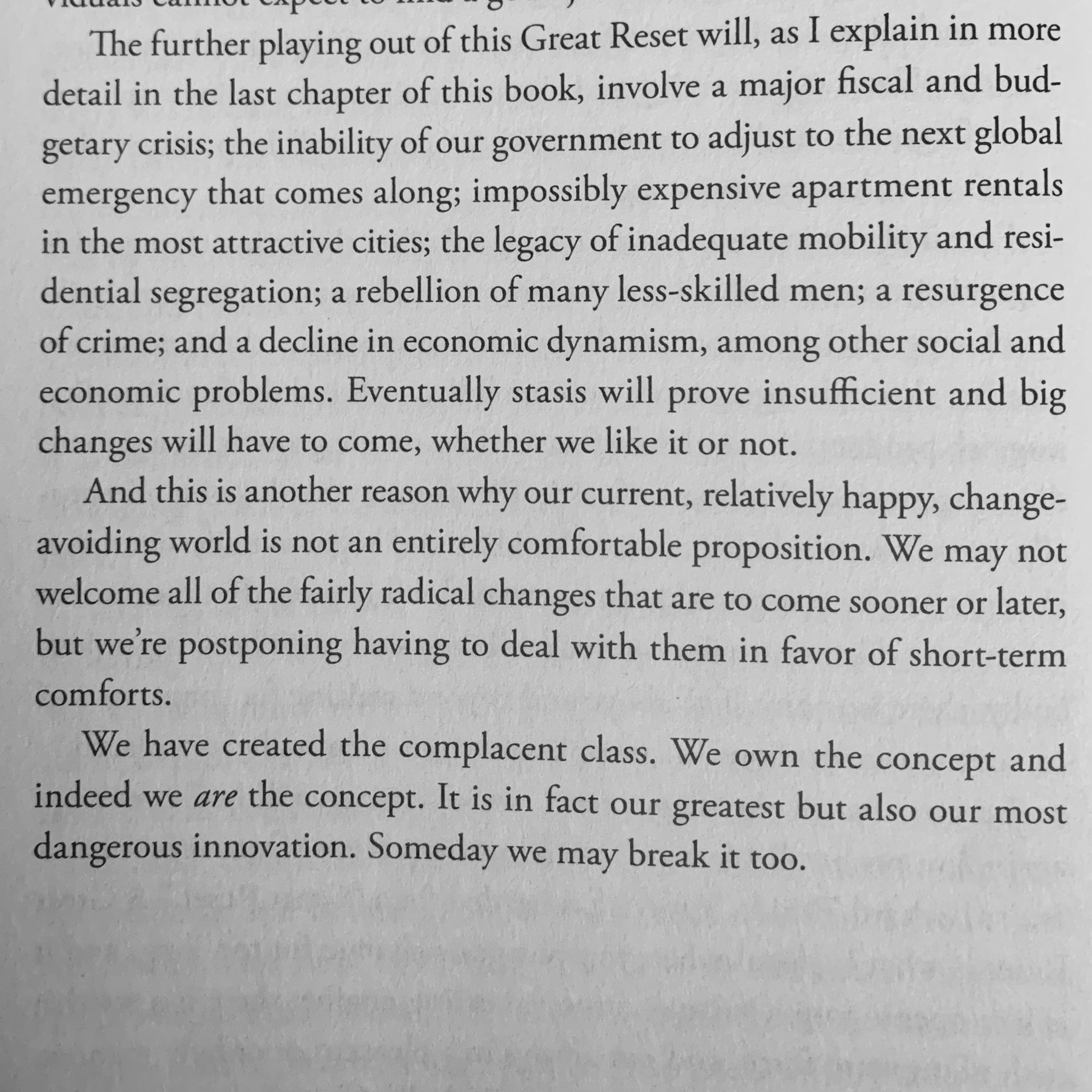
📚 The last paragraph of the last chapter of Fooled by Randomness, and I can’t read it without thinking about Norm Macdonald.
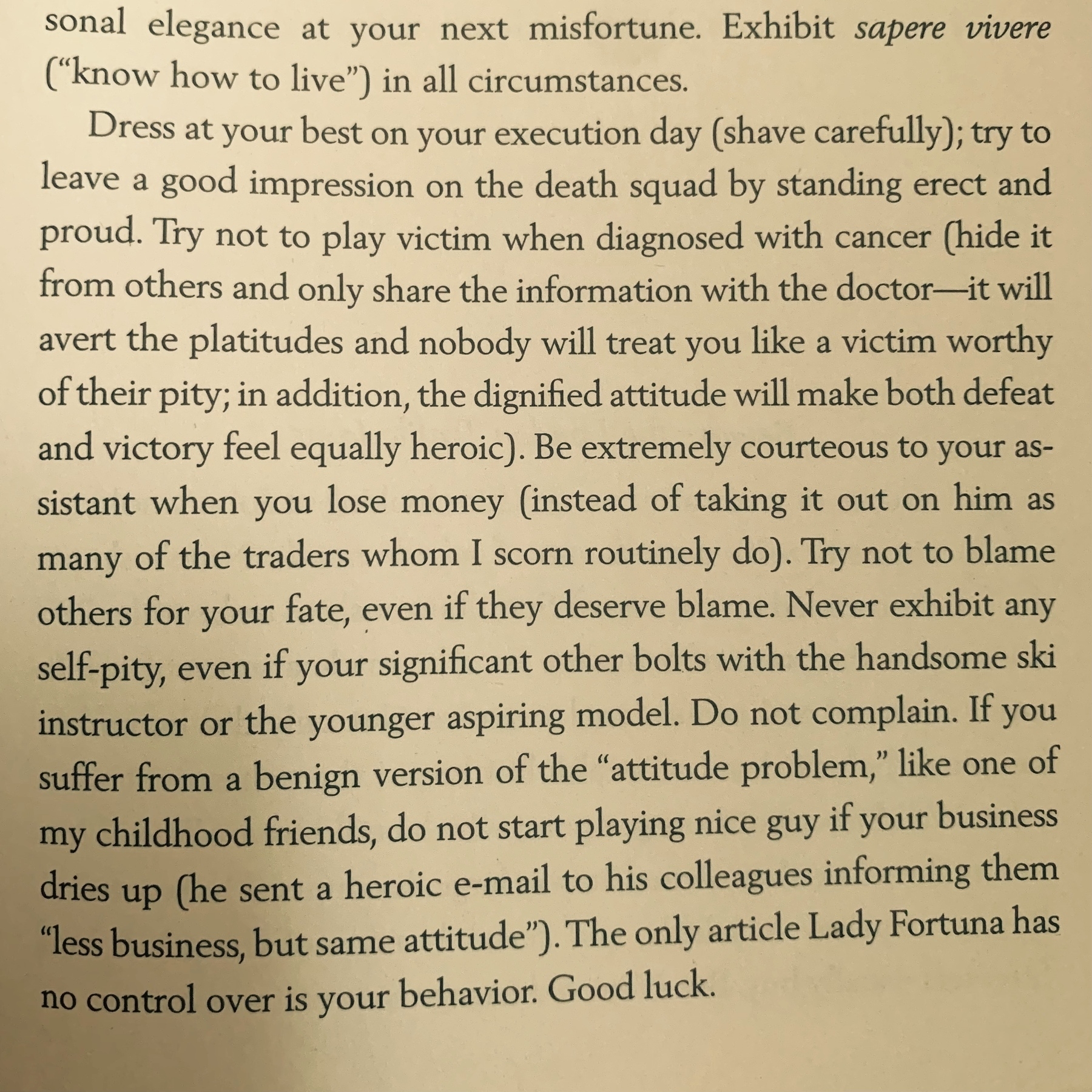
📚 On regression to the mean in Fooled by Randomness. Beware the uncontrolled phase 2 data, especially ones with surprisingly large effect sizes.
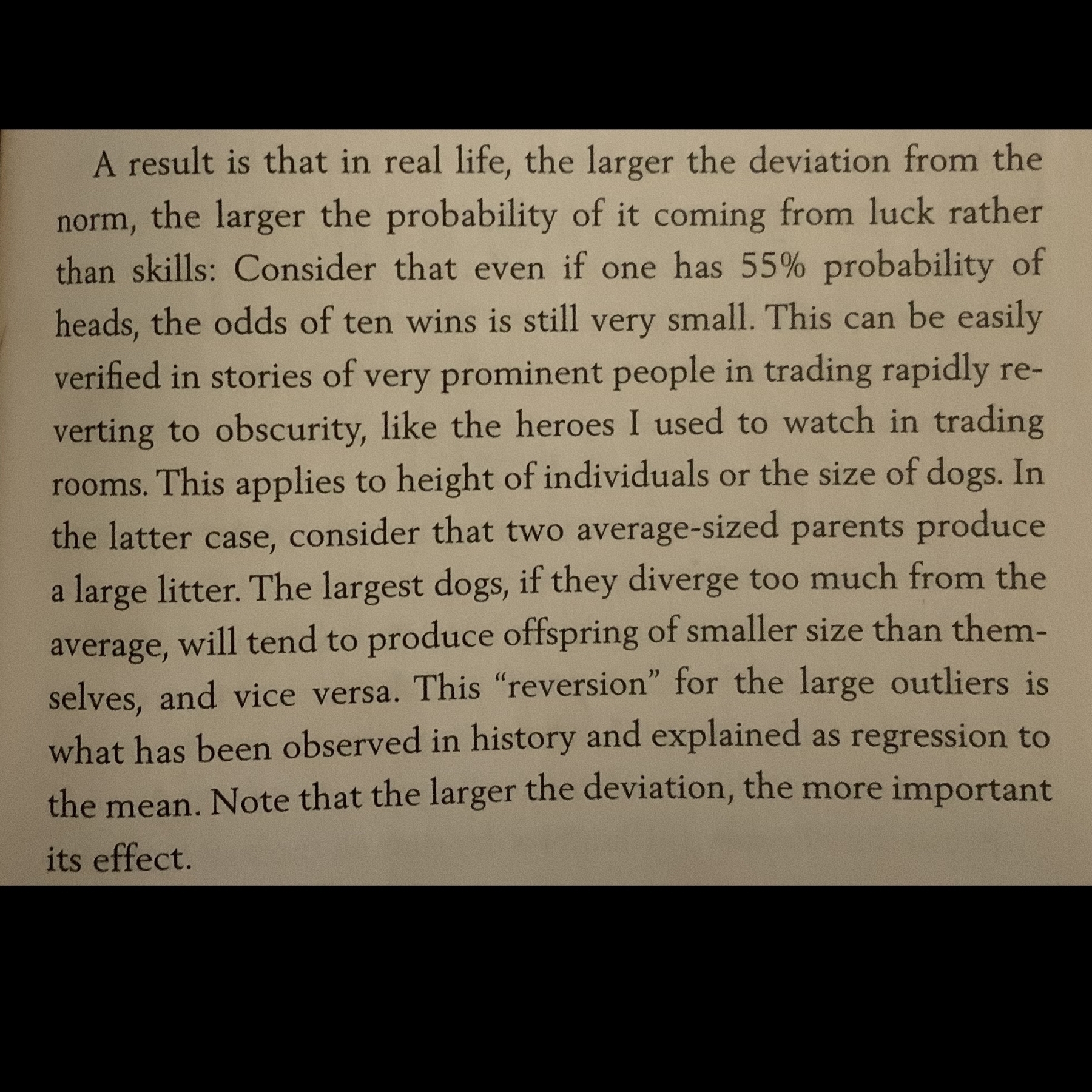
📚 Halfway through Fooled by Randomness, the seeds of Antifragile. It’s all one work, all that’s missing is cross-references from earlier to latter written parts.
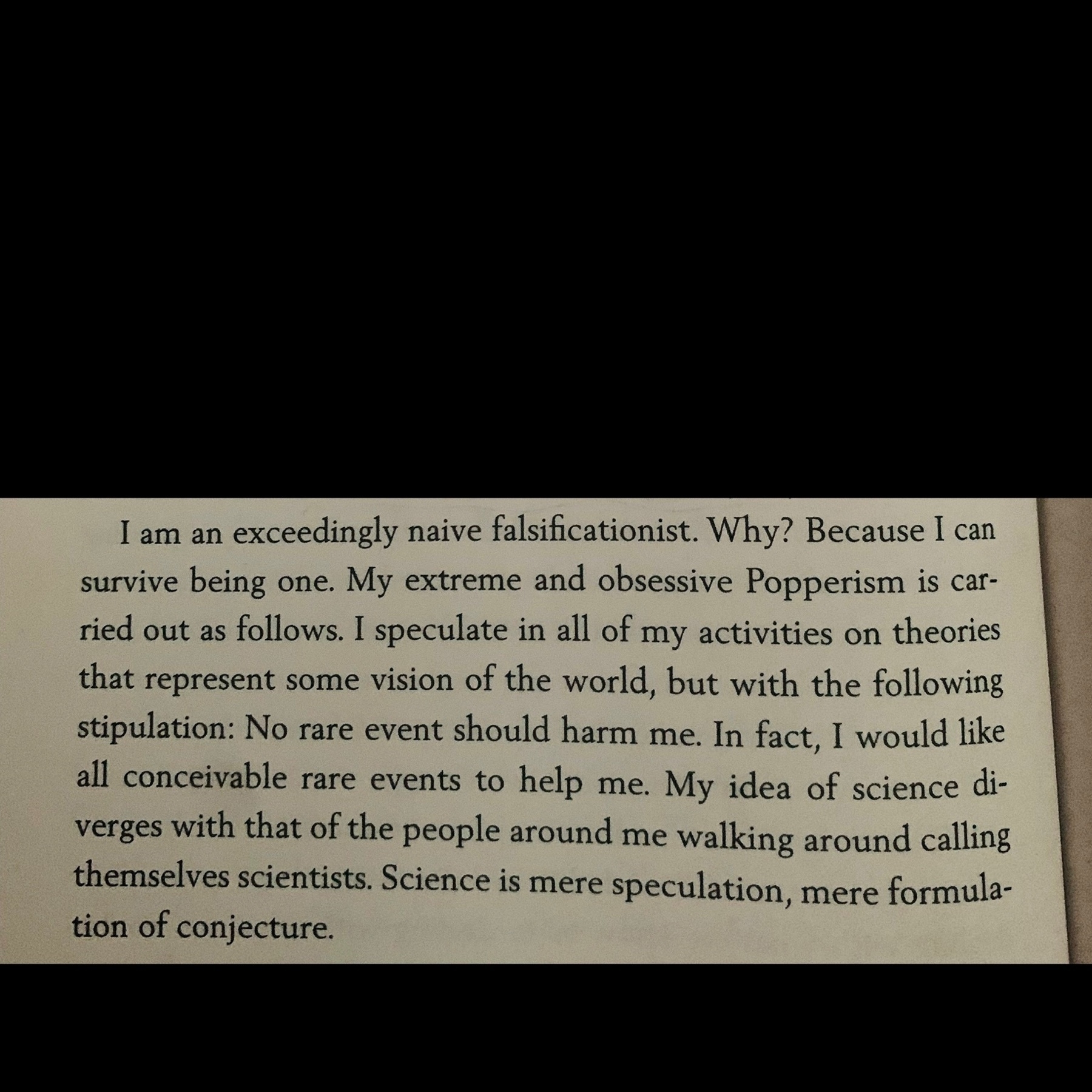
📚 Catching up with John, the busted high-yield trader in Fooled by Randomness.
If you are talking about a 10 sigma event you should have thought in alphas, not sigmas. There may be early hints that the data is not Gaussian but people call them outliers and brush them away.
